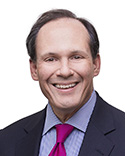One hallmark of the Gensler SEC was to regulate through enforcement, particularly in cases where there may have been no explicit governing rules. That approach raised understandable resistance from the securities industry specifically and the business community more broadly. Not surprisingly, President-Elect Donald Trump’s nomination of Paul Atkins to replace Chairman Gary Gensler was met with applause by the broader business community, in part, with the hope that the new chairman will take a less hostile approach than his predecessor. It is well known that Atkins was the founder of Patomak Global Partners, a firm that consulted to the securities industry and other market participants. Indeed, the digital asset and crypto community has been supportive of the pick in large measure because the chair nominee has been a vocal supporter of innovation and crypto.
But how “friendly” will Atkins actually be toward the securities industry? His public statements since he left the SEC in 2008, when he finished his term as a commissioner, provide clues.
Why not simpler, easier-to-understand regulations?
The chair nominee has broadly criticized the burdens the SEC imposes in requests for information in enforcement cases and more broadly on public companies “in the normal course.” Perhaps rhetorically, he challenged a panel of current SEC staff to answer “just how are you effectively using this information, this wealth of information” and how heightened disclosure requirements “advance the mission of the SEC?” He has also specifically criticized the Dodd-Frank Act (passed in response to the 2008 financial crisis) for implementing a number of required public company disclosures. Examples he has used include CEO pay ratios, which was something that was considered by some to be at the core of Dodd-Frank at the time it was passed. He commented that some disclosure requirements “place real burdens on public companies and their shareholders who ultimately pay the costs of making these immaterial disclosures that provide no benefit to economically-driven investors.”
In his public comments on the JOBS Act, the chair nominee noted that the JOBS Act was effective in part because it “prove[d] that you do not need hundreds or thousands of pages of complex legislation to help Main Street businesses and protect consumers and investors.” He criticized the regulatory environment at the time that he saw as burying startups and small businesses “under an ever-increasing mountain of red tape that inhibits the ability of these firms to innovate, grow, create jobs, and spur economic growth.”
Encourage capital flow and innovation in lieu of overregulation.
One theme Atkins has repeated in everything from informal podcasts to formal congressional testimony is that the SEC should regulate without discouraging capital flow or innovation by market actors. In a recent appearance on a libertarian-leaning podcast discussing crypto, the chair nominee declared that both federal and state regulators should “be attuned to [innovative] opportunities and then accommodate … reasonably … things that are out there to advance cost savings and innovation.” He also remarked that the SEC should “enable markets to flourish … if it helps to bring down costs for investors and for people who are trying to raise capital … that’s the reason why we have financial markets and to have capital find its way … to businesses.” And, recently in comments made during SEC Speaks in 2022, he was not shy about criticizing the Gensler SEC in its refusal to provide investment advisers with adequate regulatory guidance about custody protocols for digital assets.
The chair nominee years earlier gave similar testimony before the U.S. House of Representatives. Commenting on the federal JOBS Act, he praised the potential for financial technologies to benefit the economy at large: “Disruptive technology and business models can be a huge boon for industries, increasing competition, breaking down barriers to entry, and benefiting consumers, investors, employees, and taxpayers.” He also warned against a rush to regulate, cautioning that he “would urge the SEC not to regulate in this area of fintech and crypto until it has a more complete understanding of the products and services these emerging companies provide, their business models, and the marketplaces in which they operate.” Atkins stated that the SEC should not “necessarily attempt to jam fintech into its existing, one-size-fits-all regulations.”
Go after the bad actors, not the technology.
Finally, Atkins has noted that one of the key roles of the SEC is to ensure that markets are fair for everyone, and that involves catching bad actors who attempt to game the markets. But, using crypto as an example, he does not necessarily believe that crypto or related technologies is to blame for creating fraud. Speaking on the FTX fraud, he noted that it was not necessarily a problem created by crypto: “It happened to happen in the crypto space, but when you peel back the layers it’s the same thing that happened elsewhere, someone without proper controls without proper governance of the corporation uses other peoples’ money to do things without accountability.” Like Bernie Madoff, SEC chair nominee Atkins noted that “FTX founder Sam Bankman-Fried was not accountable to anyone, there was no board.”
He has also stressed the importance of proportionality and deterrence in how the SEC deals with bad actors. Speaking about one case as an example, Allianz Global Investors, which was resolved in 2022, he commented there was a disproportionate penalty imposed on the company, which was to shut down in the United States for 10 years. He said he was “not really sure that the Commission’s actions” accomplished the public policy goals of the SEC when weighed against the “effects on investors.”
While there is of course no way to predict accurately how any administration will treat any type of activity or industry, it does appear from is past comments that the chair nominee does take a more measured approach, at least relative to the outgoing Gensler administration. This will indeed be welcome news for the securities industry.
Terry R. Weiss, a partner with Duane Morris in the firm's Atlanta office, focuses his practice on representing the securities industry in the full range of legal disputes, leveraging his nearly 35 years of practical experience representing broker-dealers, investment advisors, prime brokers and securities industry professionals in regulatory and enforcement matters, civil litigation and arbitrations and internal investigations. Alek Smolij is an associate in the Philadelphia office of the firm.
Reprinted with permission from The Legal Intelligencer, © ALM Media Properties LLC. All rights reserved.









